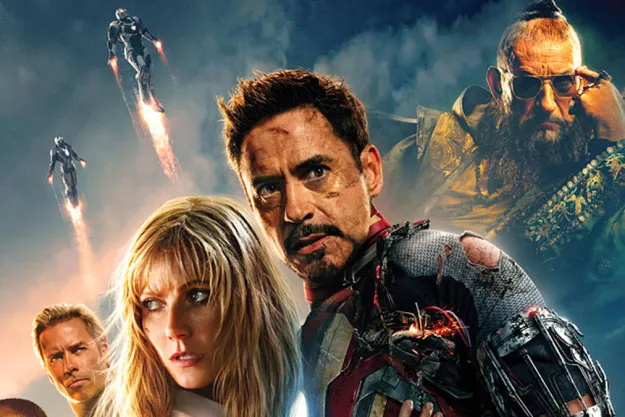In film, as in all visual mediums, there’s always a part of the story we’re not actually seeing transpire. Sometimes directors purposely leave seemingly important moments off the screen to allow our imaginations to fill in the blanks. In other cases, there’s just no time.
In Marvel’s rapidly expanding on-screen universe, there are a surprising number of crucial or just interesting moments that we never get to see in the films. From decimations to destinies, and from cosmic investigations to the nightmares of monsters, here are 10 unseen moments from the Marvel Cinematic Universe we’d love to finally see.
Thanos ignoring his destiny
In Avengers: Infinity War, right before he kills Gamora, Thanos says something curious. As it dawns on Gamora what her adoptive father is about to do, Thanos says, “I ignored my destiny once. I cannot do that again.”
This suggests there was a time when Thanos decided that for some reason, killing half of all beings was a bad call. What happened? Did he fall in love? Did he find religion? Was he on a planet putting his whole “eeny, meeny, miny, moe” genocidal strategy to work and, for just a few minutes, he thought: “Hey, am I kinda weird?”
In all seriousness, it’s an intriguing concept. Even if it only existed for the briefest of moments, a Thanos not dedicated to killing untold trillions is a Thanos worth meeting.

Hulk’s nightmare
While Ultron may have been the villain of 2015’s Avengers: Age of Ultron, the centerpiece was clearly the highly anticipated throw down between the Hulk and Iron Man in his Hulkbuster armor. The battle becomes inevitable when Wanda Maximoff uses her psychic whammy on Bruce Banner but, unlike all of the other Avengers she uses the power on, we never get to see what visions Banner suffers that trigger his transformation.
Precious little of the Hulk’s past has been told in the MCU, and Age of Ultron could have been the perfect moment to introduce some of it. In 1985’s Incredible Hulk No. 312, it’s revealed that Banner suffers horrible physical abuse as a child at the hands of his father and that abuse is part of what creates the Hulk’s personality. This history has never been established in the MCU, however, and it’s tempting to think the nightmare Wanda triggered would have been the perfect opportunity to highlight it.

Thor & Loki: From Camelot to now
In Infinity War, Thor tells Rocket that he’s somewhere in the neighborhood of 1,500 years old. Since he and Loki grew up together, it’s safe to assume Loki is around the same age. From the brothers’ conversation in Avengers, we know Thor has an affinity for Earth and its people, and since they’ve been alive since around the time of the legendary King Arthur, that’s a lot of Earth history the brothers could have interacted with. Wouldn’t some of that be pretty awesome to see?
Some Thor comics have included stories of the hero interacting with the Vikings, and early in Disney+’s Loki, we see the titular sorcerer masquerading as the infamous hijacker known as D.B. Cooper, but the brothers’ long lives offer so much more to explore. Did Thor watch Captain America from afar during World War II? Why didn’t he help? Or did he, but he kept his exploits secret? Did Thor fight Genghis Khan’s armies? Did Loki have something to do with the fall of Rome or the Bubonic plague? There’s so much potential beyond Thor learning proper diner etiquette in 2011.

After the snap
With Phase 4 of the MCU starting to roll out, we’re finally learning about some of the effects of Thanos’ fateful snap at the end of Infinity War and the return of the disappeared in Endgame, including some of the political and social ramifications.
But what about those first few minutes after the snap? There’s so much chaos to see and we’ve barely gotten even a glimpse of it. In an Infinity War post-credits scene, we see some post-snap chaos with cars crashing and a helicopter spinning into an office building, but that has to be just the tip of the iceberg.
What about ocean liners? Submarines? Passenger jets? What about the political upheaval that occurred between the snap and the resurrections five years later, when half the politicians and world leaders all died at once — not to mention when half the military personnel in the world disappear? What about prisons, hospitals, and courts?
How about the inevitable backlash after the resurrections? Imagine: Pilots flying a passenger jet die during the snap and the plane crashes, killing most or all of the passengers. Five years later, the pilots return but the passengers don’t. Or a surgeon dies during the snap, in the middle of lifesaving surgery. The patient dies on the table. Five years later, the surgeon returns but the patient doesn’t. Can you imagine the rage? The lawsuits?

The decimation of Xandar
Perhaps one of the most infuriating moments of Infinity War is learning about the offscreen “decimation” of Xandar secondhand from Thor after he’s rescued by the Guardians.
Not only is there a practical question of how exactly Thor learned about Xandar — it doesn’t seem like Thanos would take a break from beating him up to say, “By the way, in case you’re in an exposition scene later …” — but considering a huge chunk of 2014’s Guardians of the Galaxy is about saving Xandar, to have it destroyed offscreen is a little maddening. It would almost be like having the child savior of a popular time travel franchise killed in a brief flashback, and who would do something like that?
Furthermore, we still don’t really know what Thor meant by Xandar being “decimated.” It’s a passionate word, but a vague one, particularly since Thanos’ usual M.O. is to kill half the people on any particular planet. Is that what Thor meant by “decimated,” or is absolutely everyone dead, including Glenn Close’s Nova Prime and John C. Reilly’s Corpsman Dey?

The birth of Professor Hulk
The Hulk gets a raw deal in Infinity War. First, he’s thrashed by Thanos and then he refuses to emerge from Bruce Banner. By the time he returns in Endgame, Hulk and Banner have somehow found a balance with one another, allowing Banner’s personality to control the Hulk’s powerful body.
But how is this peace between Banner and Hulk found? We get nothing but vague references to the scientist working in a lab between the events of Infinity War and its follow-up. Marvel’s comics source material is full of psychic meetings between Banner and the Hulk — sometimes leading to the different personalities making peace with one another. Something like that would have been wonderful to see in either of the Russo brothers’ Avengers entries, but unfortunately it wasn’t meant to be.

Loki & Thanos
We know that between the events of 2011’s Thor and the following year’s Avengers, Loki was a student of the Mad Titan himself: Thanos. When Loki has his psychic meeting with Thanos’ servant — known only as The Other and played by Alexis Denisof of Buffy the Vampire Slayer and Angel fame — the alien refers to Thanos as “he who put the scepter” in Loki’s hand, as well as giving Loki “ancient knowledge and new purpose.”
It feels practically like a betrayal to have not ever seen Thanos’ tutelage of Loki. While Loki is seen as more of a hero these days, between the two of them, Thanos and Loki represent arguably the two greatest villains the MCU has ever seen. Yet at one point, they were allies — one was even something of a student to the other — and we never get to see it?
On a related note, it would be nice to have an explanation why Thanos — the guy obsessed with Infinity Stones — apparently already had the Mind Stone before the events of Avengers, but was willing to loan it to the god of mischief.
Black Widow & Bucky
One of the most interesting lines of dialogue in 2016’s Captain America: Civil War comes while Black Widow fights the brainwashed Winter Soldier. When Bucky grabs her throat and pins her to a table, Natasha whispers, “you could at least recognize me.”
The line really doesn’t make any sense until you learn that, in the comics, Black Widow and Bucky not only encountered each other before Captain America learned his old sidekick was alive, but that they actually had a romantic relationship. Black Widow’s Civil War line was a pretty strong hint that we would eventually see, or at least hear about, this chapter of their lives in the MCU. But with no mention of it in 2021’s Black Widow, it seems likely the window of opportunity has shut.

Thor’s Infinity Stone investigation
By the end of Age of Ultron, in terms of what’s going on in the larger Infinity Saga, the heroes finally start catching up with the rest of us. Right before leaving Earth, Thor tells Steve Rogers and Tony Stark he plans to find out exactly why the Infinity Stones have been popping up all over the place.
When next we see Thor in 2017’s Thor: Ragnarok, he’s in a cage in Surtur’s Muspelheim, telling a long-dead skeleton about how his investigation led him to “a path of death and destruction.” Later, confronting Loki (who’s disguised as Odin), Thor speaks of “the nine realms completely in chaos.”
We never see any of this. Sure, we see Muspelheim is currently filled with fiery monsters and ruled by a powerful giant, but that’s pretty much standard operating procedure for Muspelheim. Where’s all this chaos? Are the frost giants of Jotunheim getting tans? Is Svartalfheim, the long-dead world of the Dark Elves, getting a fast food chain? There are so many fantastic worlds to explore in the mythology of Thor, but rather than getting to see it, we only hear of most of it in vague exposition.

Grandmaster & Loki
When Thor finds himself captive to the Grandmaster in Ragnarok, the thunder god learns that his adoptive brother Loki has already been on Sakaar for two weeks because, as Grandmaster says, “time works real different” on the strange planet. Unlike Thor, however, Loki has found a way to gain the Grandmaster’s favor. Rather than being either enslaved or eaten like a lot of newcomers, Loki somehow gains enough of Grandmaster’s trust that he has a seat right next to the villain in the grand arena.
But we never learn exactly what it is Loki does to get in such good graces with the Grandmaster. Jeff Goldblum’s character isn’t just a powerful guy — he rules the entire planet. While it’s certainly believable the god of mischief could slither his way into Grandmaster’s social circle, it would still be interesting to know how he did so. And in case you’re wondering, yes, part of what makes us curious is the Lamentis episode of Loki, which reveals — as reported by IGN — that the character is bisexual. Considering Grandmaster counts orgies among his favorite pastimes, it’s conceivable the villain could be seduced by a god.
Editors' Recommendations
- The best Marvel movie just turned 10 this year. Here’s why it’s still a blast to watch
- Marvel Studios finally announces its Fantastic Four cast
- The Marvels just might be the MCU’s first huge box office disaster
- Bringing back the original Avengers won’t save the MCU
- The MCU should adapt X-Men: Evolution. Here’s why



